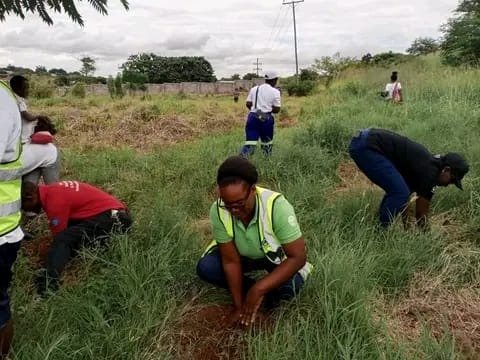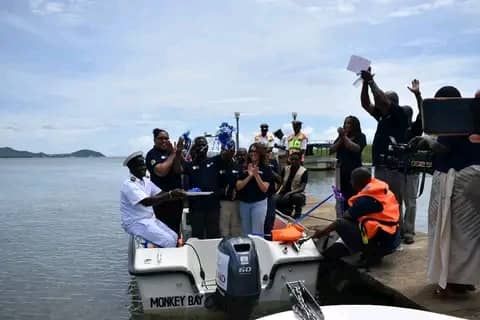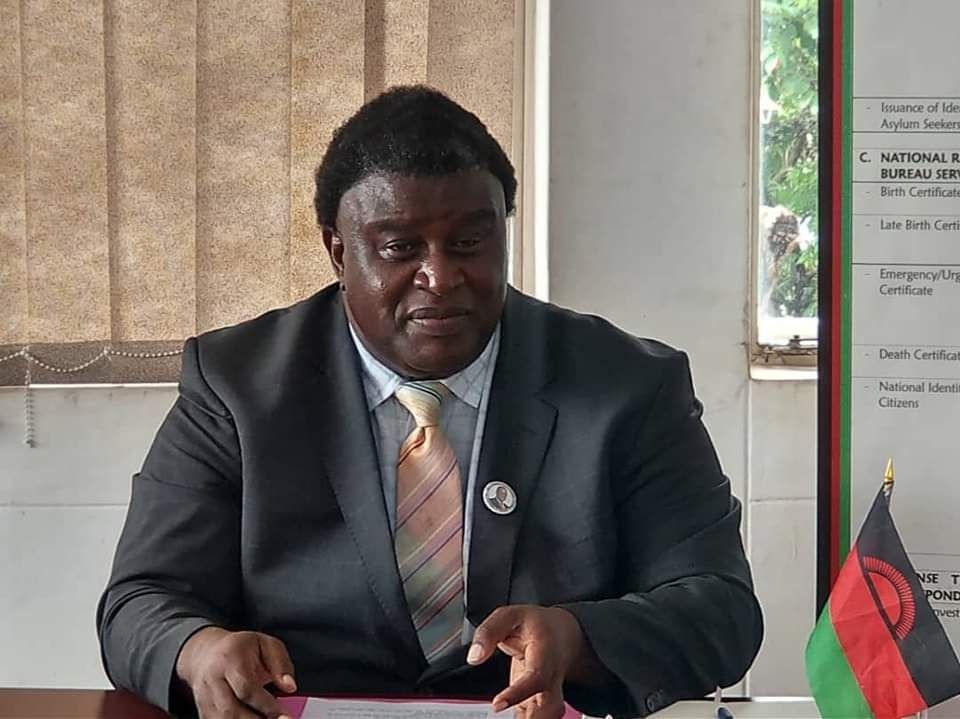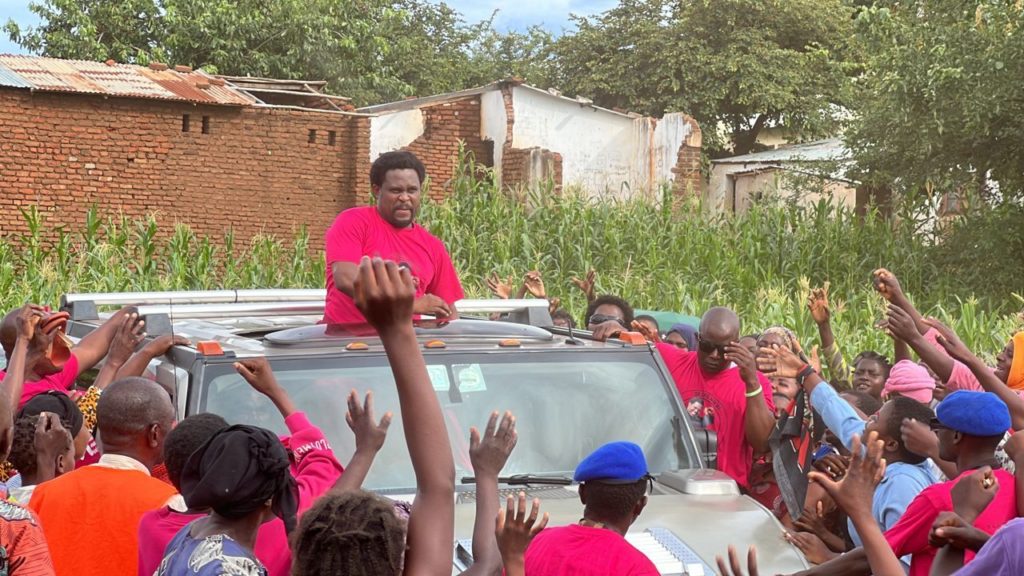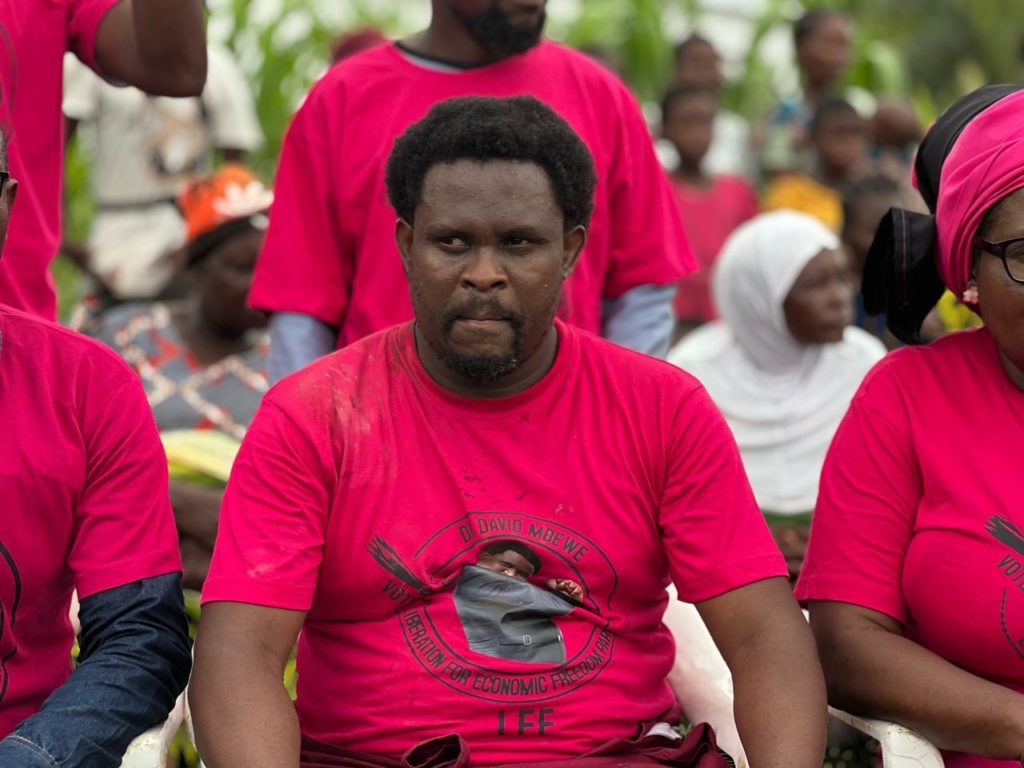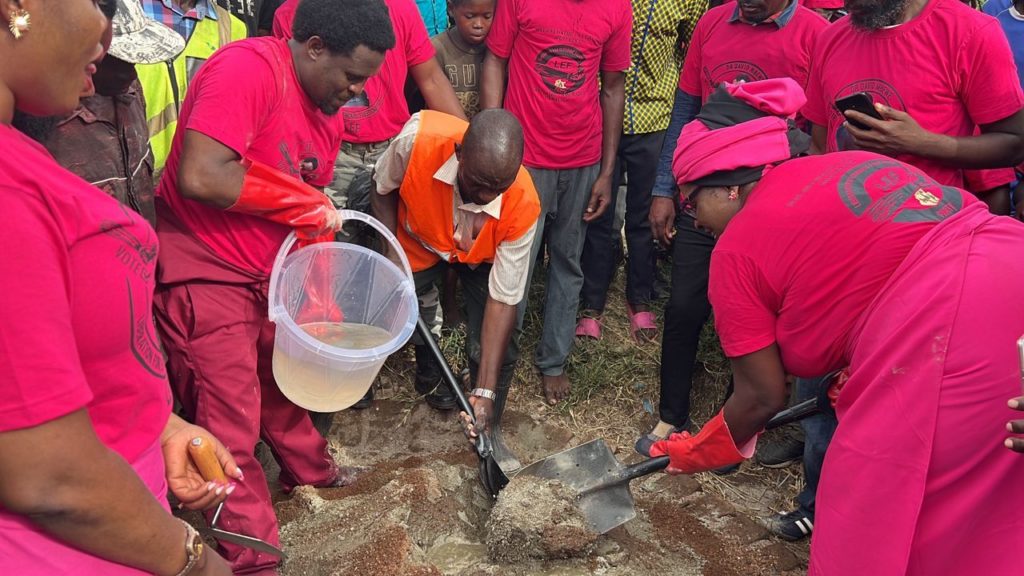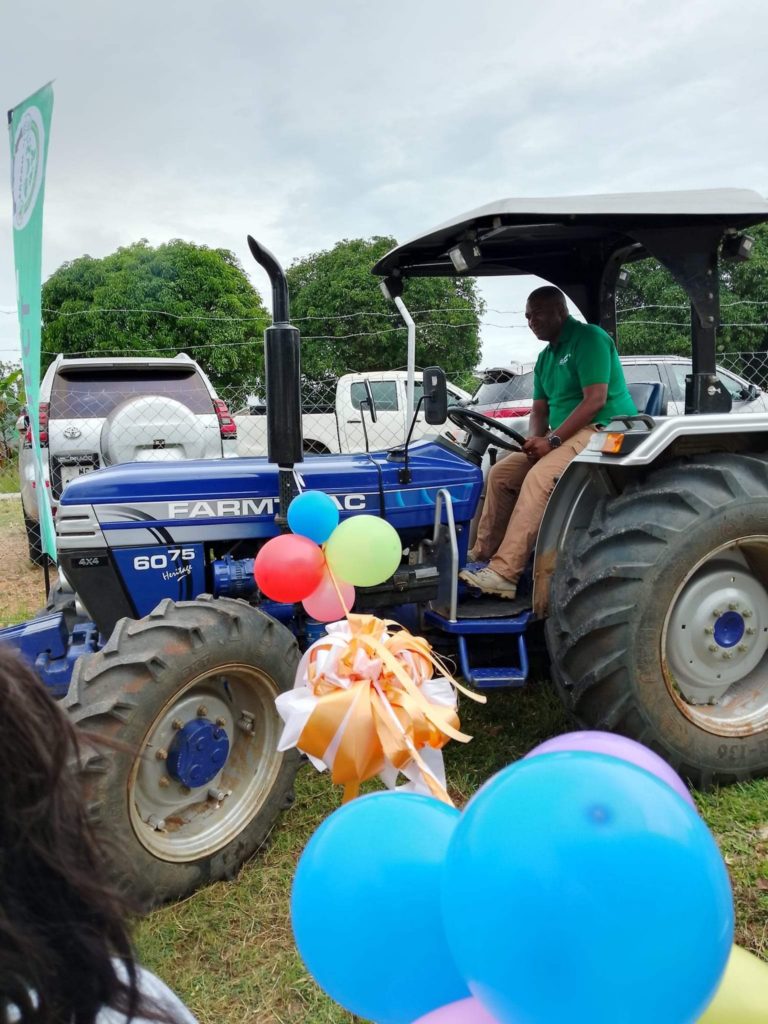By Twink Jones Gadama
In the fight against air pollution, one of the most effective weapons we have at our disposal is the simple act of planting trees. This message was reiterated by Lilongwe Water Board’s Waste Water Treatment Manager, Phyllis George, who emphasized the need for Malawians to make tree planting a year-round habit rather than just a seasonal activity.
According to George, the presence of trees in our environment is crucial for combating harmful emissions and improving air quality. Trees act as natural barriers, absorbing carbon dioxide and other pollutants while releasing oxygen into the atmosphere. By increasing the number of trees in the country, we can create a healthier and more sustainable environment for generations to come.
The importance of tree planting was highlighted during a recent event organized by Lilongwe Water Board’s Environmental Conservation Club. The club members gathered in Kauma, a community in Lilongwe, to plant trees and raise awareness about the benefits of greening our surroundings.
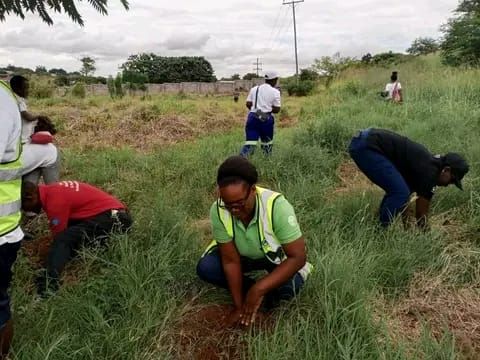
As the sun shone down on the volunteers, each one took a shovel in hand and dug deep into the earth to make room for a new tree. The act of planting trees is not just about beautifying our landscapes; it is about taking meaningful action to protect our planet and improve our quality of life.
The event in Kauma was just one small step in the larger movement towards environmental conservation in Malawi. However, the impact of these efforts can be felt far and wide, as each tree planted represents a commitment to a brighter, cleaner future for all.
In her address to the volunteers, Phyllis George emphasized the importance of sustainability in tree planting initiatives. She urged Malawians to go beyond the official tree planting season and make it a regular practice in their communities. By instilling a culture of tree planting, we can ensure that our environment remains healthy and vibrant for years to come.
The benefits of tree planting extend beyond just improving air quality. Trees also provide shade, reduce soil erosion, and support biodiversity by creating habitats for birds, insects, and other wildlife. In addition, planting trees can help mitigate the effects of climate change by sequestering carbon and reducing the impact of extreme weather events.
As the volunteers worked together to plant trees in Kauma, a sense of camaraderie and shared purpose filled the air. Each sapling represented a hope for a greener, more sustainable future, where nature and humanity coexist in harmony.
The event in Kauma served as a reminder that every individual has a role to play in protecting our environment. Whether planting a single tree in a backyard or organizing a community tree planting initiative, each action we take has the power to make a difference.
As the day drew to a close and the last tree was planted, the volunteers stood back to admire their handiwork. The sight of rows of young trees standing tall against the sky served as a symbol of hope and renewal for the future.
In the fight against air pollution, tree planting is a simple yet powerful tool that we can all use to make a positive impact. By following the example set by Lilongwe Water Board’s Environmental Conservation Club, we can work together to keep Malawi green and ensure a healthier environment for all.
As the sun set on the event in Kauma, one thing was clear: the seeds of change had been planted, and with time and care, they would grow into a forest of opportunity and promise for generations to come.


